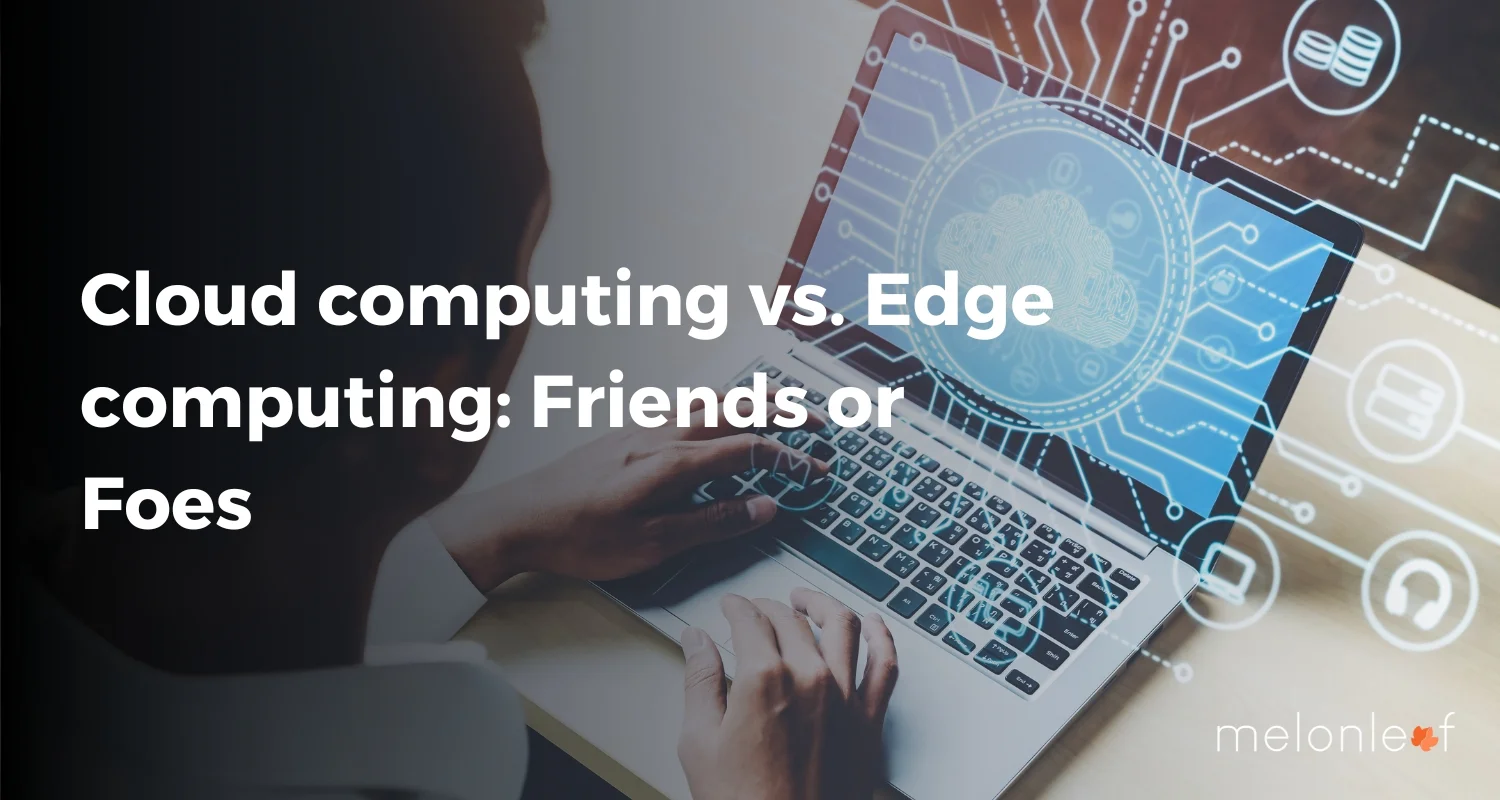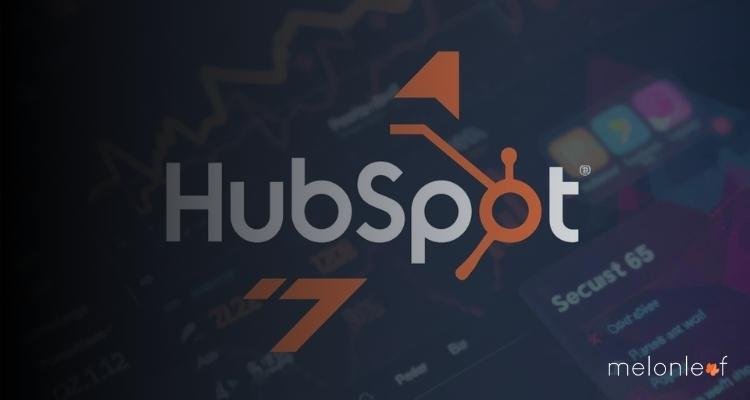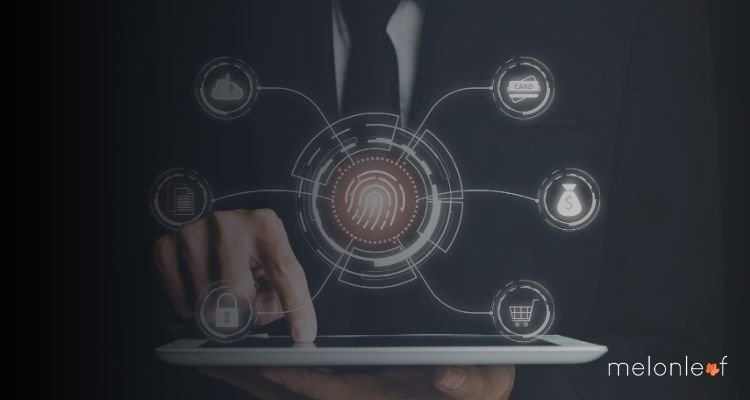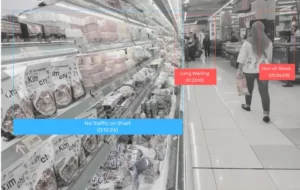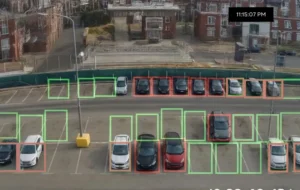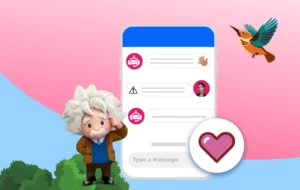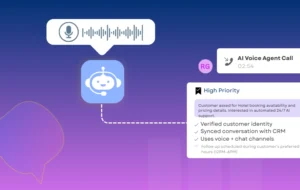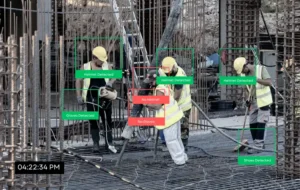In the last decade, cloud computing has become quite a big thing. It allows businesses to effectively utilize cloud services. Most brands now use the cloud to store company data, including employee details, project information, and even confidential data.
But now, a new concept of edge computing is making its place.
Both cloud and edge show certain similarities, but there are a lot of differences between cloud computing and edge computing.
Unlike cloud computing, edge computing does not require commuting to the server; instead, it brings the server closer to the end-user, or at the “edge” of the network. This tremendously improves the speed of data processing with a minimum or zero latency.
This article will dive deep into understanding cloud computing vs. edge computing and which one you should choose for your business.
What is Cloud Computing?

The Cloud Computing market is estimated to reach $947.3 billion by 2026. Not only this, 94% of all organizations now use cloud services for regular business operations. Cloud Computing is nothing but renting your own IT infrastructure.
We know how costly it was when organizations owned data warehouses with limited space and high costs. So, rather than buying computing infrastructure to store or process data, businesses rent it and use cloud services.
Cloud services offer access to storage, servers, databases, software, analytics, and business intelligence. Businesses can use these features at a lower cost and with much higher performance through cloud computing. Salesforce, a leading CRM software, leverages cloud computing.
Advantages of Cloud Computing
- Cloud computing is way more secure than in-house computing. Every organization under the cloud is directed to adhere to mandatory security policies, and the cloud itself restricts user access to confidential information. Plus, stealing data from a physical infrastructure is way easier than the cloud.
- Any data stored on the cloud is unlikely to get lost even if any hardware crashes. Your information on the cloud is stored on different servers and multiple locations so, it’s actually never lost.
- Cloud application promotes collaboration by allowing users to view, edit and share data across the network. This makes it easier for businesses to see real-time changes and get hold of all previous activities made on the document.
- In comparison with physical infrastructure, the cloud provides unlimited storage to import videos, images, and documents and store them as long as you want.
- Cloud work on the pay-as-you-go model, which means you only pay for the space you are using. Plus, if you have thought of building your servers, that would cost you thousands of dollars with regular hardware and software maintenance.
Disadvantages of Cloud Computing
- The cloud solely works on the internet; your business would be unable to do anything if that wasn’t working. Even though there are various internet plans on the market, this situation is sometimes inevitable. You might find yourself stuck with no internet access.
- Your business doesn’t own the cloud infrastructure; while this has a positive aspect, it also leaves blind spots in determining exactly where your data is stored. This can sometimes cause security breaches by not following the security protocol.
- Cloud users often find difficulty in moving from one cloud vendor to another. Any mishandling in migration can cause data leakage, which is not a good sign.
What is Edge computing?
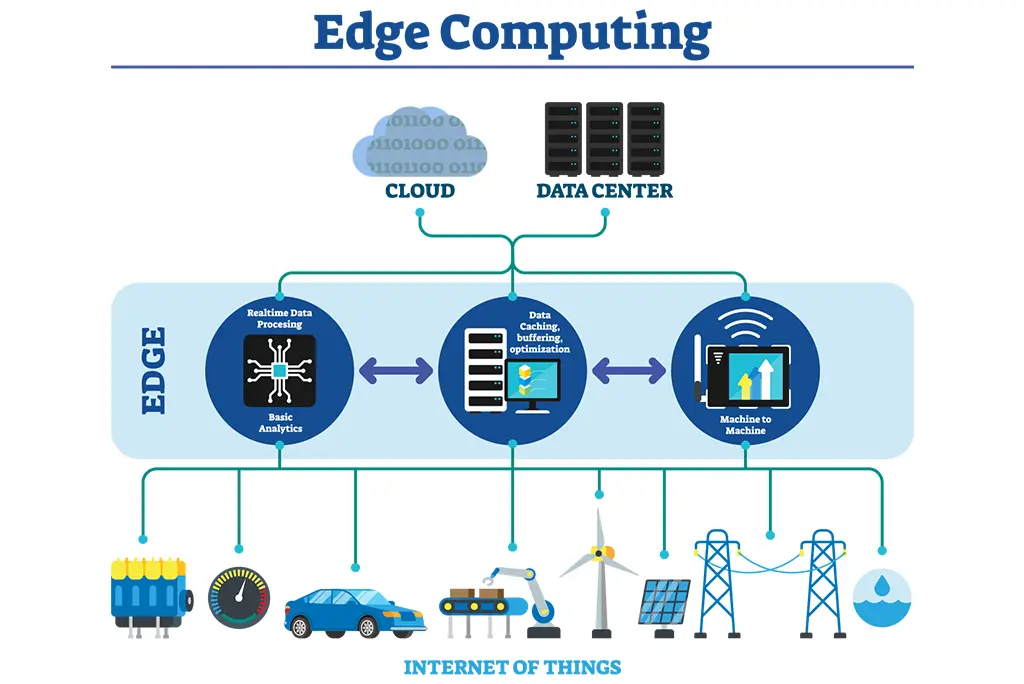
The exponential growth of IoT devices has led to the discovery of edge computing. These devices offer quick data processing of large volumes of data. Edge computing refers to storing data closer to the device or at the ‘edge’ of the network to quickly access the information.
While working on the cloud, all this data is centralized thousands of miles away from devices which affects its performance with regular latency issues. A study issued by Gartner says that 75% of all data will be processed outside the cloud or traditional data centers by 2025.
Many times cloud and edge have been interchangeably used, which is untrue. Edge is an extension of the cloud and not a replacement. Many businesses use edge and cloud together to harness the benefits of both these technologies.
Advantages of Edge Computing
- Edge computing is adopted for its speed. The technology reduces the distance from where the data is stored to where it is processed. This improves the data processing speed and reduces latency.
- The edge technology can help scale your public and corporate computing by resolving instant data requests at the local level and giving time to data centers for large data processing needs.
- Most enterprises use cloud computing to store their data. This means they have to spend a lot of money safeguarding information from any security breaches. However, with edge computing, you can store your not-so-important data on local servers across the globe and fewer data to move in the cloud.
- Edge computing can also work without a cloud; just install local servers, and you are good to go.
- Edge does not require internet connectivity, so you get uninterruptible service. It stores your data on microdata centers near your device, accessible in a snap. This technology is best for remote locations where internet connectivity is an issue.
Disadvantages of Edge computing
- While using the cloud, you pay for a centralized data location; however, the edge requires more software and hardware maintenance scattered across multiple locations.
- Businesses might find it challenging to categorize which data they want to store on edge and not cloud. The security feature of the edge isn’t much powerful compared to the cloud.
- Data processed on the cloud is discarded and does not really reach the cloud space. However, this isn’t a problem as businesses use edge to save up those extra space, but there are chances of misinterpretation of data usage on edge devices.
What is the difference between cloud computing and edge computing?
| Criteria | Cloud Computing | Edge Computing |
| Meaning | It is a software-defined environment used for data storage. | It is a physical environment made up of hardware used for data storage. |
| Working | It’s an act of running workloads on the cloud. | It’s an act of running workloads on edge devices. |
| Data processing | Non-time sensitive data processing. | Real-time data processing |
| Internet connection requirement | Reliable internet connection required. | Works in remote locations as well with less or no internet connection. |
Cloud computing vs. Edge Computing: Which one should you choose for your business?
In Cloud computing vs. Edge Computing, they’re not interchangeable technology. As IoT becomes more prominent, the need for edge computing will improve. Also, considering that the volume of data generation will increase, businesses would require a system where data processing is fast.
When you incorporate edge computing with centralized cloud support, you get to leverage the advantages of both technologies. The future of data processing infrastructure lies somewhere between the cloud and the edge. Cloud computing will help you keep all your essential data, and the edge will quickly process time-sensitive data and keep the chain flowing, especially when integrated with Salesforce Marketing Cloud Services.
Choose Melonleaf as your cloud computing partner
Melonleaf’s expertise is exclusively focused on helping businesses in the Salesforce ecosystem. You can rely on our team of experienced Certified Salesforce professionals who are problem-solvers and capable of tackling the most complicated technical challenges our clients might be facing.
Here’s why you should choose us:
- We have solved complex problems for our clients and brought flexibility to their businesses. With proficiency in Salesforce, we continue to give our clients the best experience.
- We value you and your expenses. With the flexible service pricing model, you can choose what service payment model suits your business.
- Our Salesforce Consultants and Specialists come with years of experience. Their expertise and problem-solving skills help you to launch the product from ideation.
- We are exceeding the expectations of our clients and continually learning and delivering even better by staying updated with innovations in the cloud industry.
Contact our Salesforce Consultant to improve your business productivity and maximize revenue generation.

